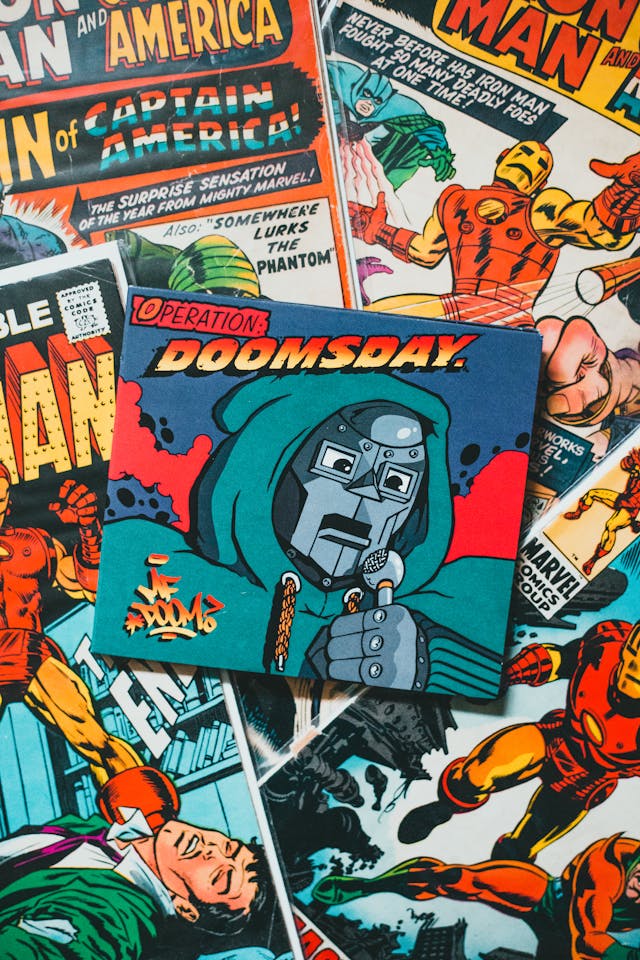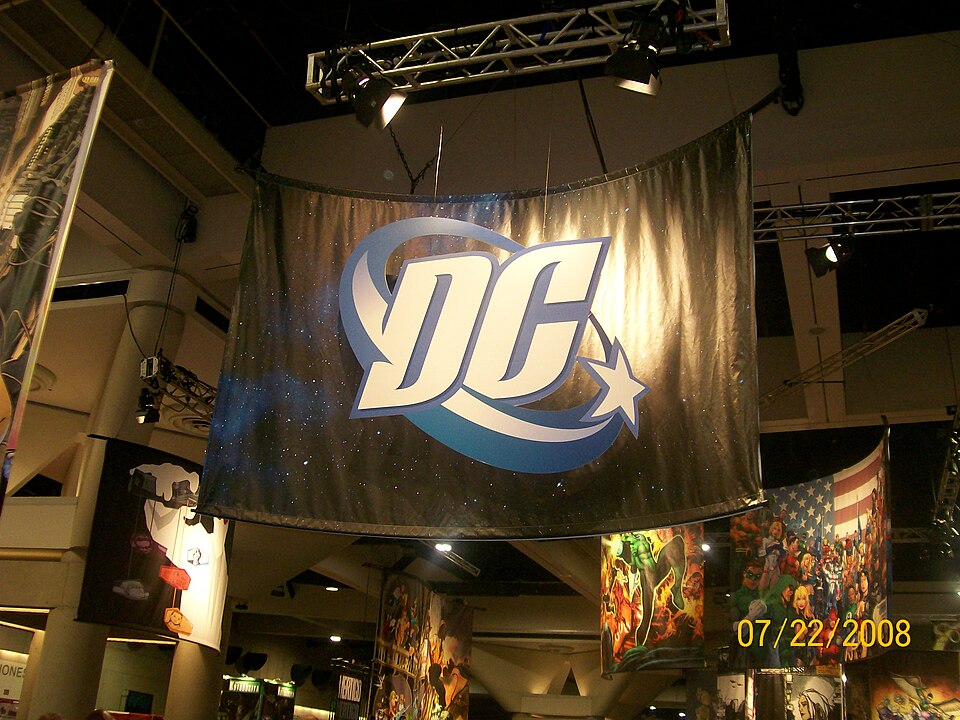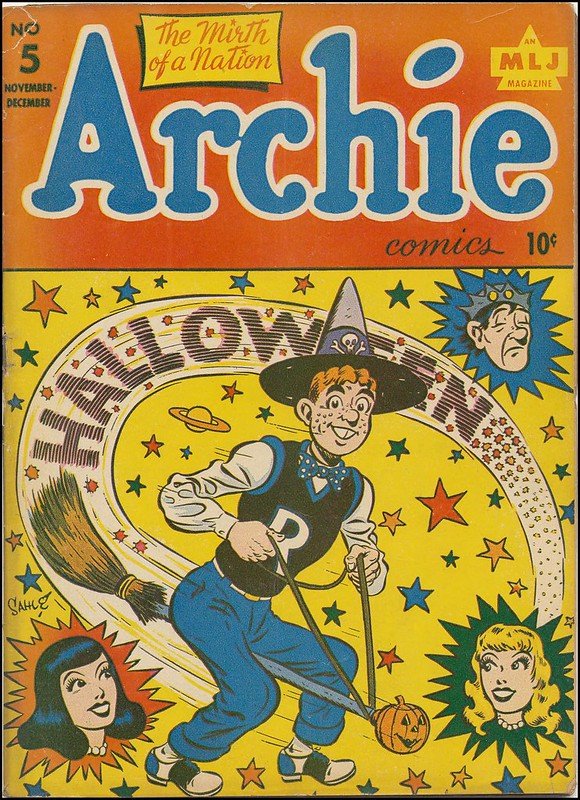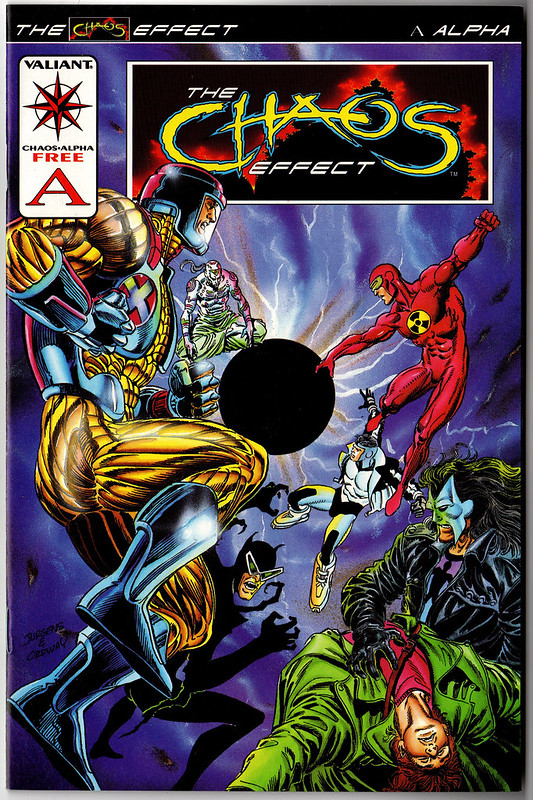9 Comic Book Publishers That Revolutionized the Industry
The comic book industry has been shaped by a handful of innovative publishers who pushed the boundaries of storytelling and introduced iconic characters and universes. These publishers not only transformed the way comics are created and consumed but also expanded the reach of graphic novels into mainstream media. From superhero sagas to unique independent titles, their contributions have made comics a global phenomenon, reaching fans of all ages and backgrounds. Whether through groundbreaking narratives, diverse characters, or bold new concepts, these publishers have left a lasting mark on the comic world.
This post may contain affiliate links, which helps keep this content free. Please read our disclosure for more info.
Marvel Comics

Marvel Comics is known for creating a universe filled with interconnected stories and characters that have stood the test of time. By launching iconic characters like Spider-Man, the X-Men, and the Avengers, Marvel set the stage for a new era in comic book storytelling. They were pioneers in running continuous storylines across different titles, a strategy that allowed characters from different series to interact and create a cohesive world. This helped Marvel build a vast universe that not only appealed to comic book fans but also captivated global audiences through movies, television shows, and video games.
Marvel’s focus on flawed, human characters added depth to the superhero genre. Characters like Iron Man, who dealt with personal demons and guilt, or the Hulk, who struggled with his inner rage, resonated deeply with readers. This nuanced storytelling, combined with dynamic visuals and action-packed plots, made Marvel a key player in revolutionizing the comic book industry. It also helped cement Marvel as a global powerhouse in pop culture, continuously expanding its influence with cross-media adaptations.
DC Comics

DC Comics is another monumental force in the comic industry, known for introducing some of the most iconic superheroes ever created, including Superman, Batman, and Wonder Woman. Founded in 1934 as National Allied Publications, DC was one of the first comic book publishers to bring superheroes into the mainstream. They set the foundation for modern comic book storytelling with epic tales of good versus evil, establishing a universe that has influenced not only comics but also film, television, and other forms of entertainment.
DC revolutionized the industry with its multiverse concept, which allowed it to explore multiple versions of its characters across different universes. This concept has been central to their storytelling and has kept their characters fresh and adaptable to modern times. Over the years, DC has continued to evolve, embracing darker themes and more mature storytelling, as seen in graphic novels like The Dark Knight Returns and Watchmen. Their influence can be felt in every aspect of modern superhero narratives, making DC an enduring force in comics.
Dark Horse Comics

Dark Horse Comics is another publisher that revolutionized the industry, particularly in the realm of licensed properties. Founded in 1986, Dark Horse quickly became known for producing comics based on popular films, television shows, and video games, including Star Wars, Buffy the Vampire Slayer, and Hellboy. They expanded the scope of what comics could be, opening the door for stories that existed outside the traditional superhero genre. Dark Horse’s ability to bring these existing franchises to life in comic form allowed fans to explore their favorite worlds in new and exciting ways.
Dark Horse also contributed to the rise of creator-owned comics, offering a platform for writers and artists to develop their unique projects. Titles like Sin City and The Umbrella Academy have made lasting impacts on the comic world, further establishing Dark Horse as a publisher that embraced a wide range of genres. Their success in mixing licensed properties with original content proved that comics could transcend genre boundaries and appeal to fans from all walks of life.
VIZ Media

VIZ Media, founded in 1986, has played a crucial role in popularizing Japanese manga in the United States and globally. With the rise of manga and anime, VIZ became the publisher that introduced many beloved titles like Naruto, Dragon Ball, and One Piece to international audiences. Their efforts helped reshape the comic book landscape, showcasing the diversity and richness of Japanese storytelling. Manga’s unique style and approach to storytelling brought a fresh perspective to the comic industry, influencing both American comics and global pop culture.
VIZ’s ability to translate and adapt these Japanese works for Western readers helped bridge the cultural gap, leading to a surge in manga’s popularity in the 2000s. As the publisher of several internationally recognized manga series, VIZ Media established itself as a leader in globalizing comics, making manga a cultural phenomenon in the West. Their contributions have left a lasting imprint on the comic book world and have opened doors for more international comics to find mainstream success.
Archie Comics

Archie Comics, founded in 1939, may not have the same superhero influence as Marvel or DC, but it played an essential role in shaping the comic book industry. Known for its long-running series about Archie Andrews, Betty Cooper, Veronica Lodge, and Jughead Jones, Archie Comics introduced a new, lighter approach to storytelling. The Archie characters became household names and a staple of American comic culture, helping to expand the comic book medium to younger audiences.
Archie Comics also revolutionized the industry by expanding beyond traditional comics into TV shows, movies, and merchandise, making the Archie brand one of the most recognizable in pop culture. Their innovative crossovers, such as Archie Meets the Punisher and Archie vs. Sharknado, showed a willingness to experiment with genres, demonstrating the versatility of comic book storytelling. Archie’s focus on relatable characters and everyday drama, combined with their wide-reaching media presence, made them an essential part of the comic book industry’s evolution.
IDW Publishing

Founded in 1999, IDW Publishing has become a key player in the comic book industry by offering a wide array of licensed comic book series. They made a name for themselves by bringing popular franchises like Teenage Mutant Ninja Turtles, Transformers, and Star Trek into comic book form. Their work on these established properties helped prove that comics could provide deeper, more complex storytelling within familiar universes. IDW’s attention to detail in capturing the essence of these franchises while adding new narratives expanded the possibilities for licensed comics.
IDW’s ability to mix established characters with fresh ideas paved the way for a new era of licensed comics that were more than just tie-ins but integral parts of the stories’ broader universes. By focusing on quality storytelling, IDW solidified itself as an important publisher in the comic book world. Their success in revitalizing and expanding established franchises shows the potential for comics to shape the future of popular media, demonstrating that comic books could reach beyond their traditional audience.
Valiant Comics

Valiant Comics, founded in 1989, revolutionized the industry with its unique approach to storytelling and interconnected universe of superhero comics. Valiant’s focus on developing a coherent, shared universe was one of their most innovative contributions to the industry. By creating characters like Bloodshot, X-O Manowar, and Eternal Warrior, Valiant established a universe where every story was connected and had lasting consequences, an approach that would later influence other publishers.
Valiant’s success helped prove that an interconnected, well-crafted universe could appeal to comic fans who wanted more than standalone stories. Their focus on strong, character-driven narratives set them apart from other publishers and gave them a devoted fan base. The influence of Valiant’s approach can be seen in many modern comic book universes, proving that their storytelling innovations helped shape the direction of the comic book industry.
BOOM! Studios

BOOM! Studios have revolutionized the comic book industry with their diverse range of titles that span both licensed and original content. Founded in 2005, BOOM! quickly became known for its work with properties like Power Rangers, Adventure Time, and Buffy the Vampire Slayer. Their ability to turn these beloved franchises into compelling comics helped expand the role of licensed comics in the modern market, showing that there was room for new stories within established universes.
BOOM! has also made a name for itself by publishing original content, such as Lumberjanes, which has gained critical acclaim and garnered a loyal following. Their focus on inclusivity, diverse voices, and innovative storytelling has made them a leader in the comic book industry. With a commitment to pushing boundaries and exploring different genres, BOOM! Studios have helped shape the modern landscape of comic book publishing.
Mad Magazine

Mad Magazine has been a revolutionary force in the comic industry since its debut in 1952. Known for its irreverent humor and satirical takes on pop culture, politics, and everyday life, Mad redefined what comic books could be. While it was initially published as a comic book, Mad Magazine transitioned to a magazine format, where it gained a reputation for its unique approach to humor and parody. Characters like Alfred E. Neuman became cultural icons, and Mad’s influence on humor and satire in comics is still felt today.
Mad’s impact on the comic book world goes beyond just humor. The magazine’s ability to push boundaries, take risks with its content, and critique societal norms made it a staple for generations of readers. Mad’s blend of comic art with satirical writing broke the mold for what a comic could accomplish, helping establish the idea that comics could tackle serious topics in a humorous and thought-provoking way.
This article originally appeared on Avocadu.
